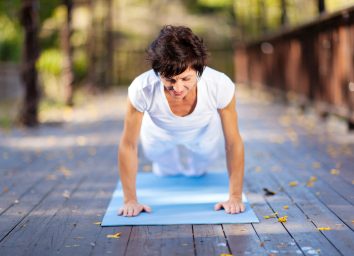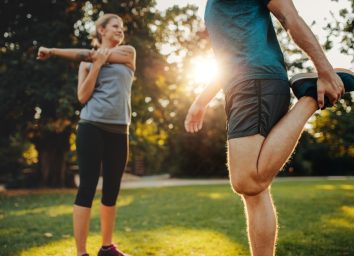The Secret Side Effect of Consistent Exercise, Says New Study
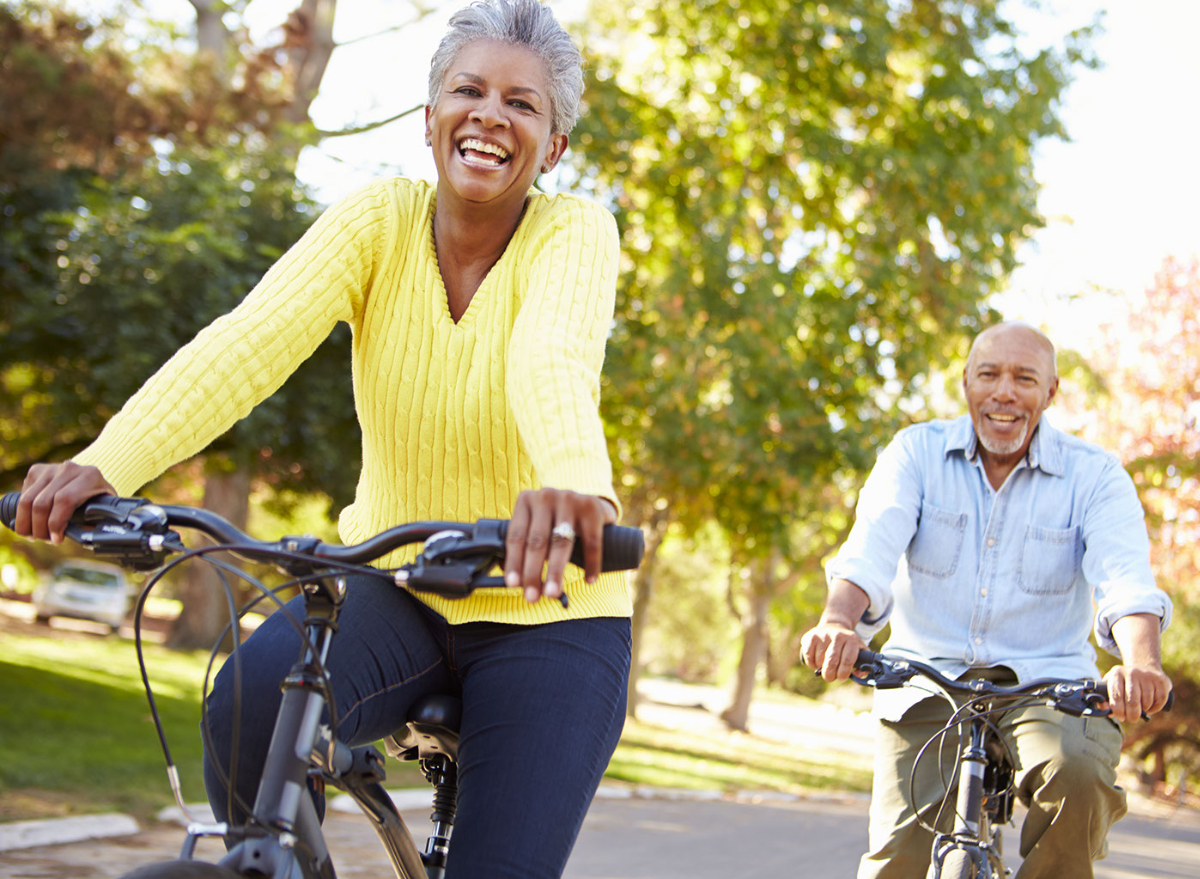
Physical injuries are hard to ignore. Conditions of the mind, however, are far more subtle. As a result, common mental health issues such as depression and chronic anxiety often go overlooked for far too long. Thankfully, the stigma surrounding mental health continues to disintegrate. For instance, a recent survey conducted by the Anxiety & Depression Association of America reports that almost 90% of Americans consider mental wellbeing just as important as physical health.
This is good news, as research published in Psychological Medicine reports that an estimated 10% of the global population lives with an anxiety disorder, with such conditions being twice as common among women in comparison to men. For perspective, know that that research was conducted before the COVID-19 pandemic, which has undoubtedly raised everyone’s anxiety levels. A recent poll put together by the American Foundation for Suicide Prevention finds over half of Americans (53%) are dealing with more anxiety since the pandemic arrived.
So, if you’ve been feeling more anxious lately, what can you do to gain some relief? The importance of finding someone to talk to, whether that be a therapist or just a trusted friend, cannot be overstated. Beyond that, you’ve probably heard anecdotally that exercise can help remedy a bad mood and alleviate anxiety. Well, if you remain skeptical about the impact of movement on the mind, consider the findings of an all-new study published in Frontiers in Psychology. Keep reading to learn more about the secret mental benefit of consistent exercise. And for more healthy living tips, know that If You Can’t Do These Exercises, You Need to Exercise More, Says Science.
Regular exercise = major drop in anxiety risk
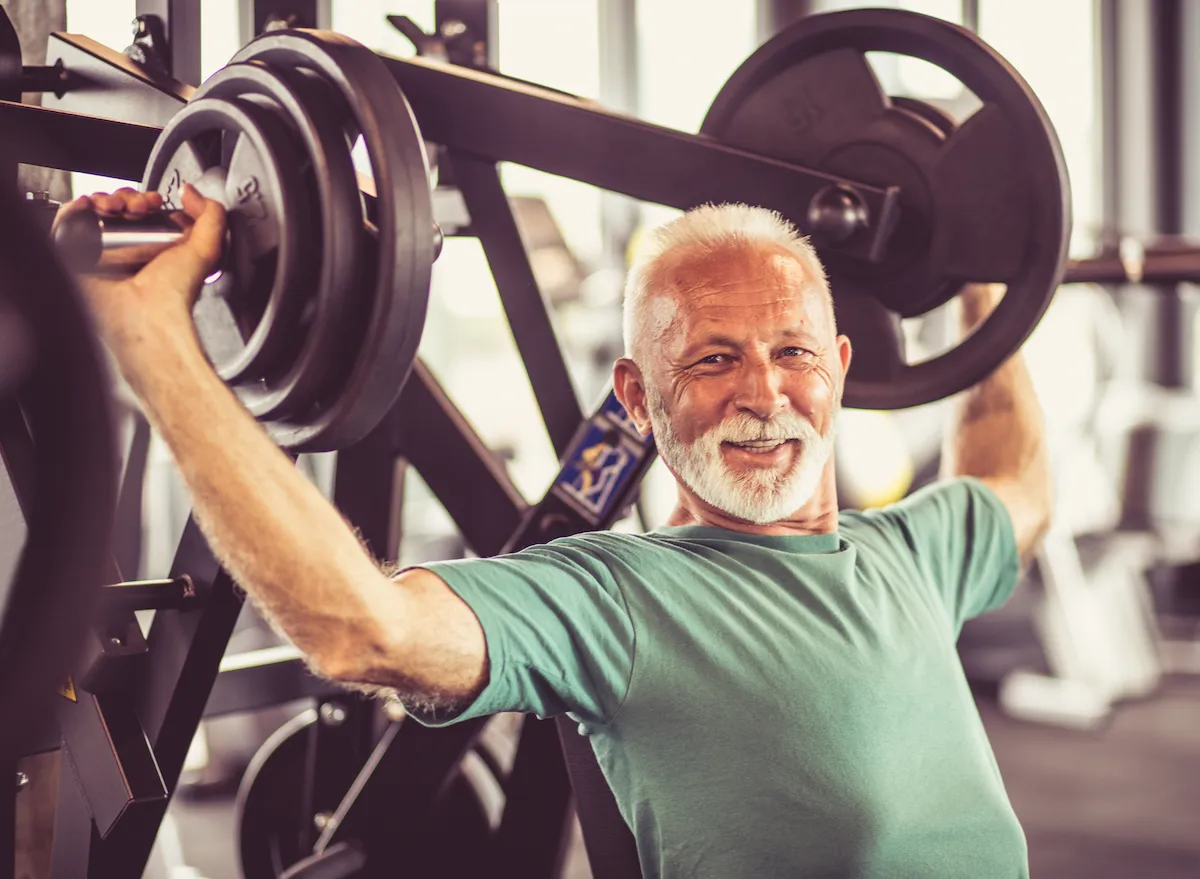
Scientists from Lund University in Sweden tracked a group of nearly 400,000 people for up to over 20 years. That investigation led to the compelling finding that individuals who maintained an active lifestyle were nearly 60% less likely to develop an anxiety disorder. Common anxiety disorders include generalized anxiety disorder (GAD), panic disorder, and any number of specific phobia conditions (fear of social interactions, for example).
“We found that the group with a more physically active lifestyle had an almost 60% lower risk of developing anxiety disorders over a follow-up period of up to 21 years,” writes first study author, Martine Svensson, and her colleague and principal investigator, Tomas Deierborg, of the Department of Experimental Medical Science at Lund University, Sweden. “This association between a physically active lifestyle and a lower risk of anxiety was seen in both men and women.”
While this certainly isn’t the first research project to investigate the effect of exercise on mental health, most of those earlier studies focused broadly on depression or mental wellbeing in general. This work distinguishes itself from the rest by investigating anxiety disorders specifically. Additionally, this study is unique thanks to it’s very large dataset/participant count and extensive follow-up tracking period.
In other words: These findings represent some of the most compelling evidence to date indicating that consistent physical activity goes a long way toward strong mental health and anxiety avoidance. And for some exercises you should do—especially as you get older—don’t miss The Best Exercises for Building Stronger Muscles After 60, Say Experts.
The research

At the heart of these findings is the Vasaloppet, known as the world’s largest long-distance cross-country ski race. About half of the 395,369 individuals included in this research were participants in that race at some point between 1989 and 2010. The rest of the study subjects were members of the general population in Sweden who were “matched up” with the skiers according to similar demographics (age, neighborhood, etc). From there, all participants’ health and wellness outcomes were tracked for up to 21 years.
Gender differences
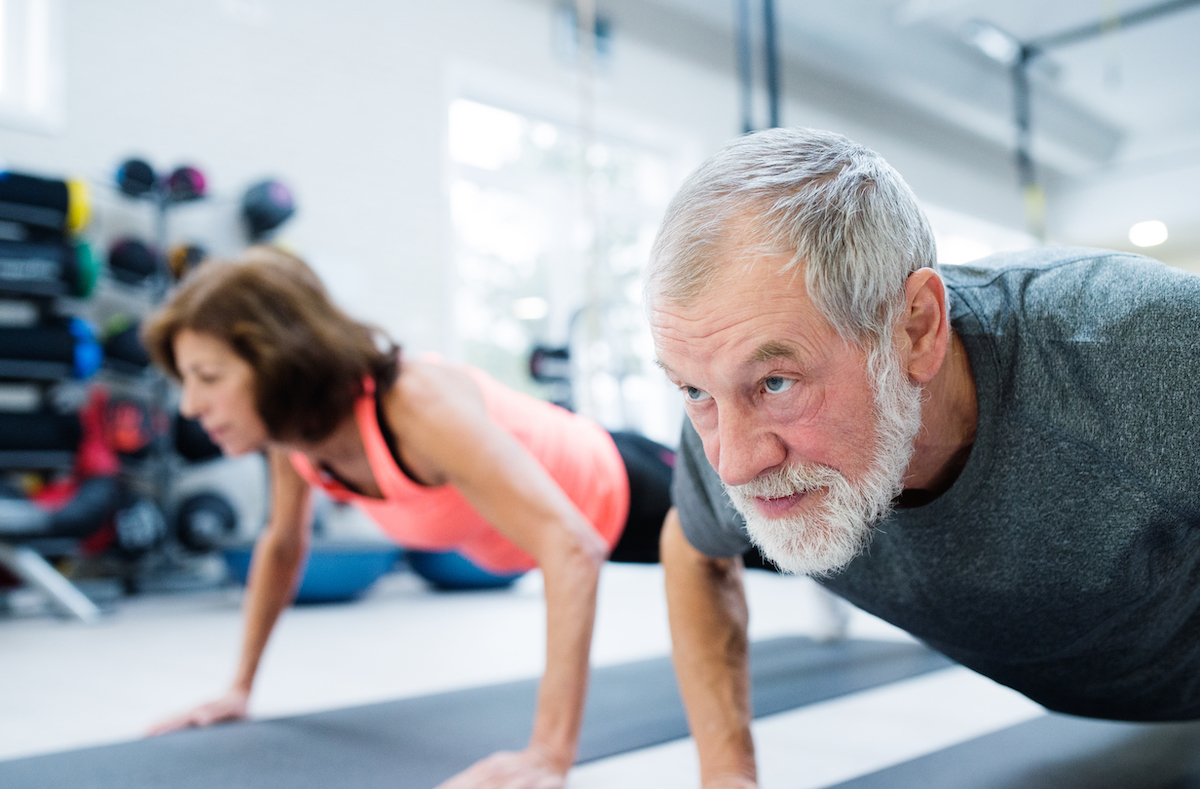
Interestingly, while participating in the long-distance ski race and leading a more active lifestyle in general helped both men and women better avoid anxiety in the long-run, some notable differences were recorded between genders.
Female skiers who performed at a high-level during the ski race had nearly double the risk of developing an anxiety disorder over the follow-up period in comparison to equally active women who competed at a “lower performance level.” This wasn’t the case for male skiers, suggesting that the women who completed the ski race quickly were more susceptible to anxiety.
However, the research team is quick to clarify that active women were still far less likely to develop anxiety than their inactive counterparts.
“Importantly,” study authors explain, “the total risk of getting anxiety among high-performing women was still lower compared to the more physically inactive women in the general population.”
You don’t have to go skiing!
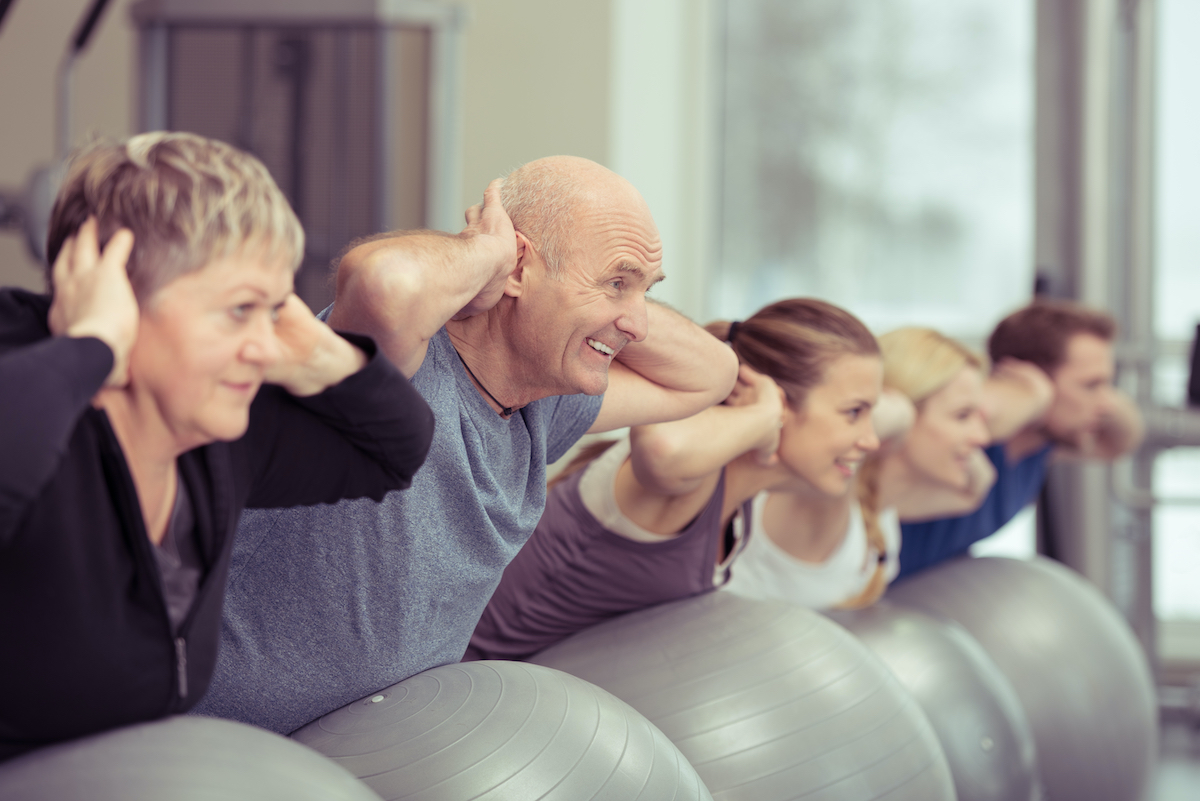
In summation, study authors believe much more research is needed on this topic, especially pertaining to the recorded differences among men and women. It would also be an oversimplification to say that exercise can beat anxiety all on its own. There are likely a number of other factors that can influence anxiety risk.
“Exercise behaviors and anxiety symptoms are likely to be affected by genetics, psychological factors, and personality traits, confounders that were not possible to investigate in our cohort. Studies investigating the driving factors behind these differences between men and women when it comes to extreme exercise behaviors and how it affects the development of anxiety are needed,” Svensson says.
That being said, the general findings of this work make a strong case that consistent exercise helps promote a significantly lower risk of developing an anxiety disorder. The Vasaloppet is, of course, only one race, but participants in this race tend to exercise more on a regular basis than the rest of the Swedish population.
Before you dust off your old pair of skis, study authors made it a point to mention that they believe their findings would be very similar among athletes across a variety of sports. The message here is to exercise more, not necessarily to ski more. (Although, it probably doesn’t hurt that skiing takes place outdoors. Nature has long been shown as a positive for mental health.)
“We think this cohort of cross-country skiers is a good proxy for an active lifestyle, but there could also be a component of being more outdoors among skiers,” researchers say. “Studies focusing on specific sports may find slightly different results and magnitudes of the associations, but this is most likely due to other important factors that affect mental health and which you cannot easily control in research analysis.” And for some more news from the front lines of exercise science, make sure you’re aware of the One Major Side Effect of Sitting on the Couch Too Much, Says New Study.

